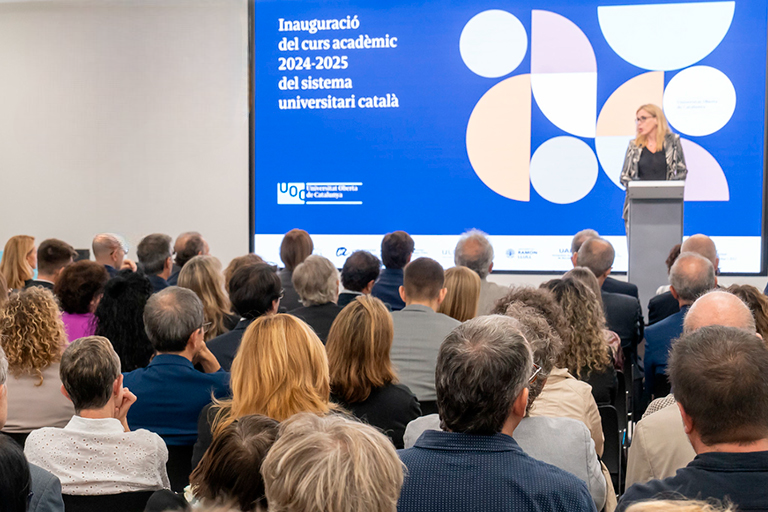Language policy

Handling languages in a multilingual and multicultural setting such as the UOC is both complex and important. We need to find a balance between the local and international aspects of the university and be aware of the impact language can have on the quality of teaching, research, knowledge transfer and administrative services.
Because Catalan is the native language of Catalonia, where it shares official status with Spanish and is used at all levels of education, it is the UOC's preferred institutional language. Spanish is also an official language of Catalonia, alongside Catalan, and is therefore also an official language of the UOC. English is used in the university's daily activities and as a lingua franca by the international academic and scientific community. It is the most common foreign language used by UOC students, who study it as a course in most of the university's bachelor's degree programmes.
As a result, the university takes on the commitment to promote multilingualism and multiculturalism among the UOC community in order to enrich and help build bridges between the people who generate and share knowledge at the university.
Language Plan 2025–2027
The UOC's Language Plan 2025–2027 was validated by the Language Policy Committee on 20 November 2024 and ratified by the Executive Board on 2 December 2024. It sets out the university's language policy in the current context, and systematically updates the UOC's strategic framework, consolidating the foundations for a multilingual and multicultural coexistence. It also guarantees the use of Catalan as the institution's preferred and working language.
The plan is based on five specific objectives and 51 actions organized into four areas (the institution, teaching, research and knowledge transfer, and administration), and sets out the UOC's language policy and work schedule for the period 2025–2027.
The UOC's General Principles of Language Policy [CA]
The UOC's general principles of language policy
Since 2015, the UOC has been guided by general language policy principles that have both served as a framework of reference for the handling of languages in the university's activities and underpinned the development of the institution's language policy in the Language Plan 2025–2027.
The eight language policy principles were designed to ensure coherent use of languages in the UOC's communications and to make the use of Catalan as the university's preferred language compatible with the deployment of a multilingual strategy.
The Language Service manages the UOC Language & Style, Llengua i estil de la UOC and Lengua y estilo de la UOC websites, which offer language resources and guidelines in English, Catalan and Spanish, respectively. The sites also provide guidance on effective communication, writing, and style.
The aim of these sites is to help the university community with any doubts they may have and to provide the people producing texts in any of the UOC's working languages with guidelines on language and style.
The UOC's Centre for Modern Languages, which is linked to the Faculty of Arts and Humanities, offers a wide range of language courses (Catalan, Chinese, English, French, German, Japanese and Spanish) to meet the needs of our multilingual and multicultural society.
It is responsible for the foreign language courses in the university's programmes and prepares students for the academic and professional challenges that require a competitive level of language proficiency. The centre also offers its courses to people who are not studying on programmes at the UOC.

